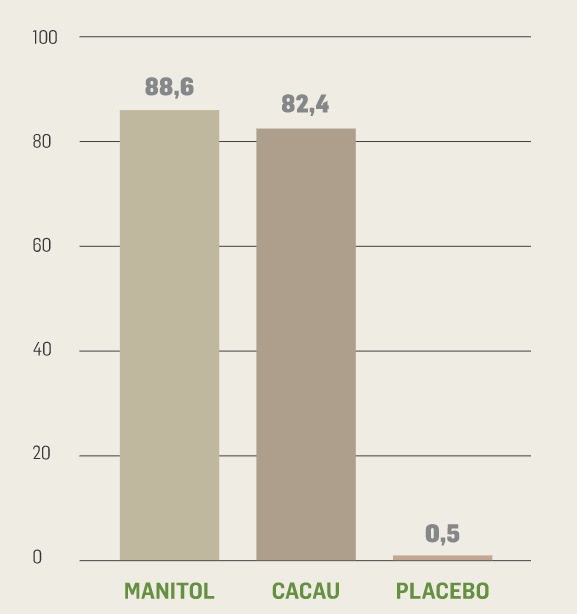Enhanced TDS
Knowde-enriched technical product data sheet
Identification & Functionality
- INCI Name
- Ingredient Origin
- Cosmetic Ingredients Functions
- Technologies
- Product Families
Features & Benefits
- Benefit Claims
- Labeling Claims
- The Plant
Passion Fruit was Always used as a Valuable Medication
The plants which produce the passion fruit are exhuberant creepers of the Passifloraceae family, which possesses a large number of species of similar use. Consumed as a fruit raw or in the form of juice, ice cream, candy or even accompanying alcoholic drinks, the passion fruit has been used by the Indians since pre-colonial times, as a powerful medicament. The leaves are famed for their antiinflammatory and cicatrizing properties, and, in teas, as a sedative. In the past, the juice of the fruit was prescribed by doctors in the treatment of eye irritations. The pulp of the passion fruit, in turn, is rich in antioxidant bioflavonoids and important minerals such as potassium, calcium, magnesium and iron, containing furthermore reasonable levels of vitamins C and A.
The Flower of Passion
Passion Fruit is originally from Brazil, the beauty of its flowers having struck the Portuguese who associated them with the Passion of Christ: they thought that the petals around the edge represented Christ’s crown of thorns, that the three stigmas, which receive the pollen, were the nails which penetrated the hands and feet of Our Lord; the tive stamen were his wounds; the ten sepals and petals represented the apostles (leaving out Peter who denied Jesus and Judas who betrayed him) and some said that they could see the cross itself in the center of the flower. For this reason, the name of its botanical genus became Passiflora: passio (passion) and flora (flower).
- Functions
Passion fruit is rich in vitamins, proteins, essential sugars, antioxidant bioflavonoids and mineral salts. FRULIX MARACUJÁ (Passion Fruit) boasts astringent, nutrient and protective properties and is recommended in formulas for the treatment, cleansing and protection of hair. FRULIX MARACUJÁ (Passion Fruit) is especially recommended in products for the treatment of difficults hair (mixed or greasy), or for conditioning and protection in leave-in products. The properties of passion fruit mean FRULIX MARACUJÁ (Passion Fruit) is also recommended for the treatement of skin, in products with nutritive and calming appeal.
Applications & Uses
- Application Format
- Hair Care Applications
- Skin Care Applications
- Use Level
- 1.0 - 6.0%
- Application pH Range
- 4.00 - 11.00
- Applications
As a more concentrated product, FRULIX MARACUJÁ (Passion Fruit) should be used in smaller concentrations than those normally used when making formulas with conventional extracts.
- Usage Guidelines
FRULIX MARACUJÁ (Passion Fruit) is compatible with the majority of ingredients used in cosmetic formulations for the treatment of skin and hair and may be incorporated cold, directly into the aqueous phase of the formulas, in accordance with the suggestions of usage levels found in the table below. It is stable at temperatures up to 90 °C, in pH conditions from 4.00 to 11.00.
PRODUCT % Moisturizing cream 1.0 to 5.0 Moisturizing lotion 1.0 to 3.0 Face mask 1.0 to 5.0 Serum 1.0 to 5.0 Shampoo 1.0 to 3.0 Conditioner 1.0 to 3.0 Face mask 2.0 to 6.0 Mousse 1.0 to 3.0
Properties
- Physical Form
- Composition
Value Units Test Method / Conditions A. Ascorbic Acid (Vit.C) * 133.4 mg/L - Calcium Content (Mineral Salts) 71.69 mg/L - Copper Content (Mineral Salts) 0.98 mg/L - Iron Content (Mineral Salts) 10.83 mg/L - Magnesium Content (Mineral Salts) 117.84 mg/L - Manganese Content (Mineral Salts) 0.98 mg/L - Potassium Content 1836.32 mg/L - Proteins Content min. 45.00 mg/L - Sodium Content (Mineral Salts) 176.76 mg/L - Zinc Content (Mineral Salts) 3.93 mg/L - - Note
Vitamin * - *Analysis performed after 4 months of shelf-life.
Regulatory & Compliance
- Certifications & Compliance
Technical Details & Test Data
- Antioxidant Action
The test for antioxidant action was carried out in accordance with the Fenton protocol,comparing FRULIX MARACUJÁ (Passion Fruit) with a saline solution (placebo) and with manitol as a positive control. The graph below shows the antioxidant action compared to the action of the saline solution.
Inhibition Of Decomposition Of Deoxi-Ribose (Fenton)

FRULIX MARACUJÁ (Passion Fruit) shows good antioxidant activity when compared to the placebo (82.4%).